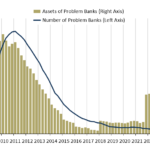The proposals would help medical technology developers access NHS funding to develop their products quickly.
NHS England and the UK’s National Institute for Health and Care Excellence (NICE) have announced new plans to adopt innovative healthcare technologies to speed up access to NICE-recommended products and improve patient outcomes.
The proposals set out a route for health technology developers to access NHS funding and rapidly develop clinically and cost-effective products for use by NHS England.
The new scheme, developed by NHS England and NICE with input from other partners including the Department of Health and Social Care, the Life Sciences Agency and the Medicines and Healthcare products Regulatory Agency, will also support health technology innovators and suppliers with automatic funding to help support the day-to-day operation of technologies that meet the required standards.
Dr Vin Diwakar, interim medical director for reform at NHS England, said: “Health technology plays a vital role in the nation’s health and these proposals outline how we can maximise its use for the benefit of patients.”
The new proposals are in line with the NHS Long Term Plan’s commitment to accelerate the introduction of selected innovative medical devices, diagnostic equipment and digital products.
More recently, medical technology devices have been introduced into the NHS, such as laser fibres which vaporise enlarged prostate tissue, and SpectraOptia, a device which uses continuous flow and centrifugation to separate and remove sickle cells from the blood.
Diwakar explained that until 15 August 2024, patients, clinicians, academics and industry can submit feedback on the proposals, which will run for 12 weeks and aim to “ensure that (the proposals) deliver maximum clinical and cost-effective benefit”.
Mark Chapman, health technology programme director at NICE, commented: “This new pathway aims to ensure patients in every part of the country benefit from the best products, devices, digital technologies and diagnostic innovations. It brings clarity to health technology developers, providing a clear route to access NHS funding in the same way that the pharmaceutical industry currently benefits.”







